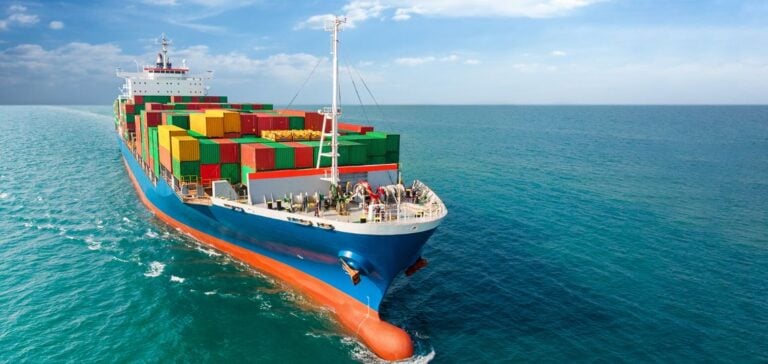Maritime transport emerges as a key solution for cross-border Carbon Capture, Utilization, and Storage (CCUS) in Asia-Pacific. A joint study by the Global Centre for Maritime Decarbonisation (GCMD) and Boston Consulting Group highlights its economic advantage over pipelines, especially for distances exceeding 500 km.
According to the report, CO2 volumes transported by sea could reach 100 million tons annually by 2050. This development will require between 85 and 150 specialized vessels, each with a capacity of 50,000 tons, amounting to an estimated global investment of $25 billion.
The advantages of maritime transport
Due to the vast maritime distances in the Asia-Pacific region, shipping offers increased economic viability. It becomes competitive for distances exceeding 500 km, with a minimum volume of about 5 million tons annually.
Emerging routes include intra-Southeast Asia pathways, ranging from 450 to 970 km, as well as routes between Northeast Asia and Australia, extending up to 11,000 km. These corridors will require concerted efforts to develop suitable port infrastructure and specific standards.
Financial and regulatory obstacles
The development of cross-border CCUS projects depends on three key factors: economic support, long-term contracts with minimum volume guarantees, and clear regulations.
Total costs for maritime transport with storage range between $141 and $287 per ton, depending on the routes. However, current carbon taxes in the region, ranging between $2 and $18 per ton, highlight a significant gap that hinders adoption. Government subsidies and economic incentives will be necessary to bridge this gap.
Required regulations and standards
A clear regulatory framework is crucial for structuring cross-border CCUS initiatives. This includes standards for CO2 impurities, transport pressures and temperatures, and bilateral agreements to clarify legal responsibilities.
Maritime and port operators also require long-term commitments from emitters, with contracts of at least 10 years guaranteeing minimum volumes. These commitments will facilitate planning and necessary investments.
A collaborative effort
The success of these projects relies on close collaboration between public and private sectors. Governments can provide direct economic support, while private actors invest in infrastructure, technology, and specialized training.
The report concludes that by addressing these challenges, the region can establish a robust CCUS value chain, significantly contributing to global decarbonization efforts.






















